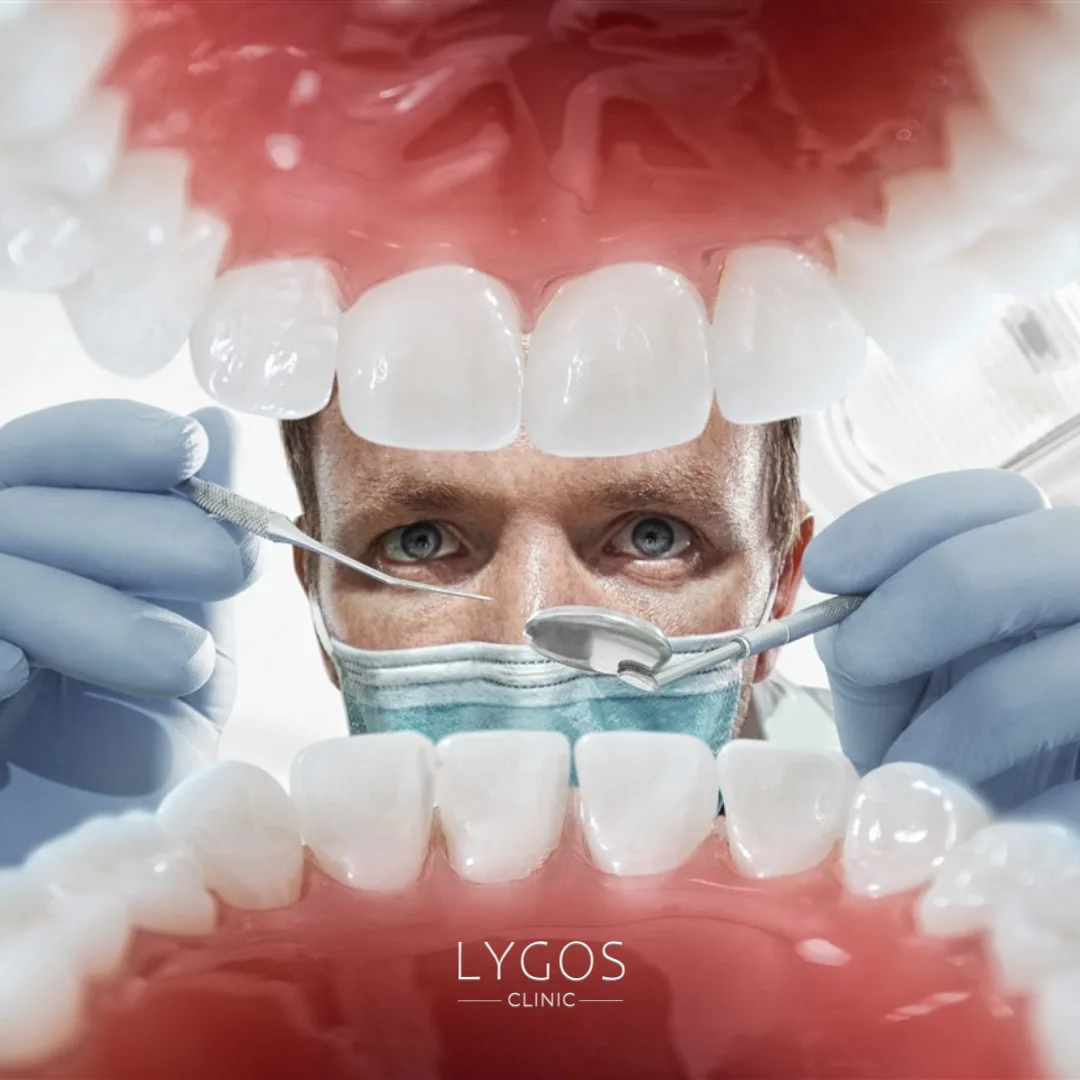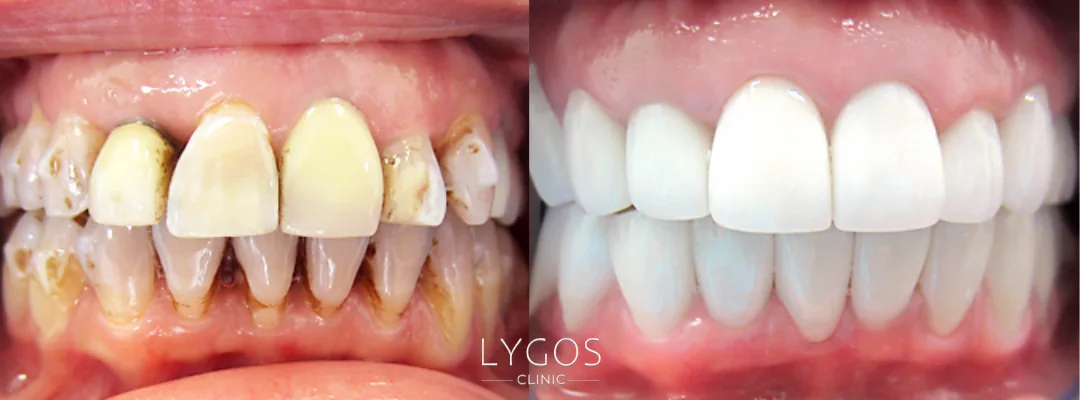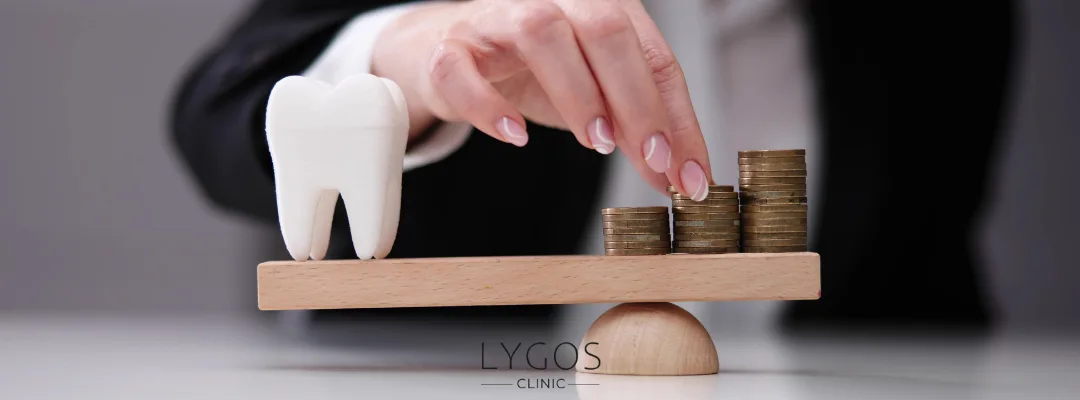Full Mouth Restoration: Turkey vs Germany

Chose Your Topic
Full Mouth Restoration: Turkey vs Germany
Oral health is a critical aspect that directly affects quality of life, both aesthetically and functionally. When there are severe losses or damages in the mouth, Full Mouth Restoration comes into play. This comprehensive treatment aims to rebuild all teeth both functionally and aesthetically. But which country is more advantageous for this treatment: Turkey or Germany? In this article, we will compare the two countries in detail.

What is Full Mouth Restoration?
Full Mouth Restoration is one of the most comprehensive and complex procedures in dentistry. This treatment is generally preferred in the following cases:
- Multiple teeth are decayed, broken, or missing
- Teeth show excessive wear or deformation
- Jaw joint problems disrupt proper bite alignment
- Aesthetic concerns and the need to improve facial appearance
Unlike repairing a single tooth, this restoration involves reconstructing the entire oral structure in a balanced and healthy way. The procedure usually includes a combination of implants, crowns, bridges, dentures, and aesthetic veneers. Full Mouth Restoration can make a significant difference both functionally and aesthetically. Proper planning and expertise are essential, so clinical experience, technology, and cost are important factors in choosing the treatment.
Dental Treatment Systems in Turkey and Germany
Dental care and oral health can vary from country to country. Turkey and Germany are frequently compared in terms of service quality and cost.
- Dental Treatment System in Turkey
Turkey has seen significant growth in medical tourism in recent years. The technologies used in dental treatments are modern and innovative. Dental clinics in Turkey generally offer:
- Precision restorations using CAD/CAM technology
- Digital X-rays and 3D imaging systems
- Modern clinics with high sterilization standards
In addition, Turkish dentists often hold international training and certifications.
- Dental Treatment System in Germany
Germany is internationally recognized for its healthcare system. Dental treatment in Germany emphasizes quality, precision, and long-lasting solutions. German dental clinics are known for:
- State-of-the-art laboratory infrastructure
- High hygiene and sterilization standards
- Highly experienced and academically trained dentists
In Germany, dental treatments are carried out with meticulous planning and long follow-up periods.

Advantages of Full Mouth Restoration in Turkey
Turkey offers several notable advantages for Full Mouth Restoration:
- Cost Advantage: Treatment in Turkey is significantly more affordable than in Germany. The same quality procedure can be done at 50–70% lower cost.
- Faster Treatment Process: Due to high demand and competition, treatment processes are faster in Turkey. Patients can usually complete full restoration within a few weeks.
- Medical Tourism & Accommodation Services: Turkey provides integrated services for medical tourists, including flight transfers, hotel accommodation, and language support.
- High Aesthetic Solutions: Turkish dentists have extensive experience in aesthetic restorations, and cosmetic dentistry practices are common.
These advantages make Turkey an attractive option, especially for patients prioritizing cost and time.
Advantages of Full Mouth Restoration in Germany
Germany also has unique advantages:
- High Quality Standards: German clinics are very meticulous regarding material quality and treatment protocols.
- Expertise and Academic Experience: Dentists in Germany usually have extensive academic education and research experience, making it ideal for complex cases.
- Long-Lasting Solutions: Restorations performed in Germany are durable due to high-quality materials and craftsmanship, reducing long-term costs.
- Comprehensive Insurance and Healthcare Support :German health insurance can cover part of the treatment costs, facilitating patient access to care.
These advantages make Germany preferable for patients prioritizing quality and long-term durability.
Full Mouth Restoration Cost Comparison: Turkey vs Germany
Cost is one of the most decisive factors when choosing Full Mouth Restoration. Generally, the costs are as follows:
- Turkey: €6,000 – €15,000 depending on the number of implants and material quality
- Germany: €15,000 – €35,000 due to expertise, high-quality materials, and longer treatment time
This comparison clearly highlights Turkey’s cost advantage. However, one should also consider quality, warranty, and long-term satisfaction.

Quality and Expertise: Which Country is Better?
The advantages of Turkey and Germany differ, and the choice depends entirely on personal priorities:
- Cost & Speed Priority: Turkey
- Long-Lasting Solutions & High Standards: Germany
- Aesthetic Results & Tourism Experience: Turkey
- Academic Expertise & Insurance Support: Germany
In conclusion, patients planning Full Mouth Restoration should clearly define their expectations and make a decision considering cost, quality, duration, and warranty.
Full Mouth Restoration is an effective treatment for serious oral health issues and improving aesthetic appearance. Turkey offers an attractive option with cost benefits, fast treatment, and aesthetic solutions, while Germany stands out with high quality, long-lasting outcomes, and professional expertise. The choice between Turkey and Germany depends on budget, treatment duration, and quality expectations. Both countries are globally recognized options for Full Mouth Restoration.
Full Mouth Restoration Turkey vs Germany Frequently Asked Questions (FAQ)
The duration depends on the number of procedures and the patient’s oral structure. In Turkey, it usually takes 2–4 weeks, while in Germany, it may take 4–8 weeks due to detailed planning and follow-up.
Local anesthesia or sedation is applied during the procedure, so pain is minimal. Mild sensitivity after treatment is normal and can be managed with painkillers.
Regular brushing, flossing, and routine check-ups are essential. Following the dentist’s care instructions is crucial to prolong the life of implants or prosthetics.
It is generally suitable for adults whose teeth and jaw development are complete. Age is not a strict limitation; what matters is the oral health and bone structure’s ability to support the restoration.



